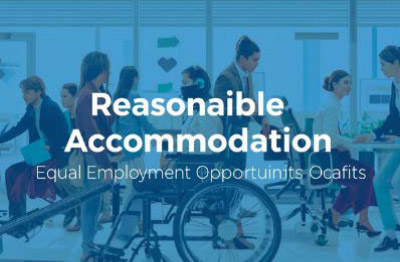Handling Employee Complaints in the Workplace
Posted on July 8, 2024

Managing employee complaints is a crucial task for any manager or business owner. However, not all complaints are created equal. Differentiating between chronic complaints, malicious complaints, and genuine concerns is essential for maintaining a healthy workplace environment. Our expert HR solutions and consultancy will define these types of complaints and provide four proven strategies to handle them effectively:
Defining Chronic and Malicious Complaints
Chronic Complaining
Chronic complaining refers to a consistent pattern of negative, non-constructive feedback. This behavior often extends beyond typical workplace gripes and can be detrimental to team morale and productivity. Chronic complainers tend to focus on problems rather than solutions, creating a culture of negativity that can spread to other team members.
Malicious Complaining
Malicious complaining involves the intentional and deceptive exaggeration or fabrication of complaints, often to damage a colleague’s or the organization’s reputation or gain an unfair advantage. This type of behavior is toxic and destructive, leading to strained relationships and a lack of trust within the workplace.
The Impact of Employee Complaints
Employee complaints can have both positive and negative effects. On the positive side, genuine complaints can lead to improvements in workplace policies, procedures, and overall environment. Constructive feedback can help managers identify areas for improvement and implement necessary changes.
However, chronic and malicious complaints can create a toxic work environment, lower team morale, and decrease productivity. It’s essential for managers to differentiate between these types of complaints and address them appropriately— many small businesses are turning to HR solutions and consultancy providers for assistance with managing complaints.
Four Proven Strategies for Handling Employee Complaints
1. Establish Open Communication Channels
Encouraging open communication is the first step in effectively handling employee complaints. Employees should feel comfortable voicing their concerns through multiple channels, such as:
- One-on-one meetings
- Suggestion boxes
- Anonymous feedback systems
By providing various avenues for employees to express their concerns, managers can ensure that all voices are heard and addressed.
Case Study: In a scenario where an employee raised a genuine concern about workplace safety, the open communication channel allowed the issue to be brought to management’s attention. As a result, new safety measures were implemented, demonstrating the positive impact of constructive complaints.
2. Implement a Structured Complaint Handling Process
Having a clear, documented process for handling complaints ensures fairness and consistency. This process should include:
- Guidelines for submitting complaints
- Timelines for response and resolution
- Steps for investigation and follow-up
A structured process helps ensure that all complaints are taken seriously and addressed in a timely manner.
Case Study: An employee consistently complained about workload distribution. By implementing a structured process, the manager was able to conduct a fair assessment of the workload and redistribute tasks accordingly, resolving the issue and improving team morale. Contact our HR solutions and consultancy to recognise these benefits in your organization.
3. Differentiate Between Genuine Concerns and Chronic/Malicious Complaints
Training managers to identify the difference between legitimate grievances and negative patterns of behavior is crucial. While genuine concerns should be addressed promptly, chronic and malicious complaints require a different approach.
- Chronic Complaining: Address the behavior in a one-on-one meeting, acknowledging the employee’s concerns while highlighting the impact of their constant negativity on the team. Encourage them to bring up specific issues constructively and offer the opportunity to be part of the solution.
Case Study: A team member consistently voiced dissatisfaction in meetings, affecting group morale and productivity. The manager addressed this by implementing regular feedback sessions, providing the employee with a constructive outlet for their concerns.
- Malicious Complaining: Conduct a thorough investigation to uncover the truth behind the complaint. If malicious intent is identified, take appropriate disciplinary action.
Case Study: An employee falsely accused a colleague of misconduct to gain a promotion. A thorough investigation revealed the deceit, leading to disciplinary action for the accuser and the implementation of policies to prevent similar situations.
4. Follow Up and Document Outcomes
After addressing a complaint, it’s essential to follow up with the employee to ensure the issue is resolved. Documenting the actions taken provides valuable insights for future reference and helps maintain transparency.
- Follow-Up: Check in with the employee to confirm that the resolution was effective and that they feel heard and valued.
- Documentation: Keep detailed records of complaints and resolutions to track patterns and identify areas for improvement.
Case Study: Following up on a complaint about workload distribution, the manager ensured the employee was satisfied with the changes and documented the entire process. This helped in identifying similar issues in the future and maintaining a fair and transparent workplace.
Utilizing an HR Solutions and Consultancy Provider
Handling employee complaints effectively is a vital skill for managers and business owners. By establishing open communication channels, implementing a structured complaint-handling process, differentiating between genuine concerns and negative behavior, and following up with employees, managers can create a positive and productive work environment.
Don’t hesitate to take action when complaints arise. Addressing them promptly and appropriately can lead to significant improvements in workplace dynamics and overall employee satisfaction.
Are you facing challenges in managing employee complaints? Book a call with an expert HR advisor at EQHR Solutions to get personalized advice and solutions tailored to your organization’s needs.

 A Labor Law: Your Compliance Guide
A Labor Law: Your Compliance Guide Navigating California's Reasonable Accommodation Laws
Navigating California's Reasonable Accommodation Laws Navigating California Leave Laws: A Guide for Employers
Navigating California Leave Laws: A Guide for Employers







